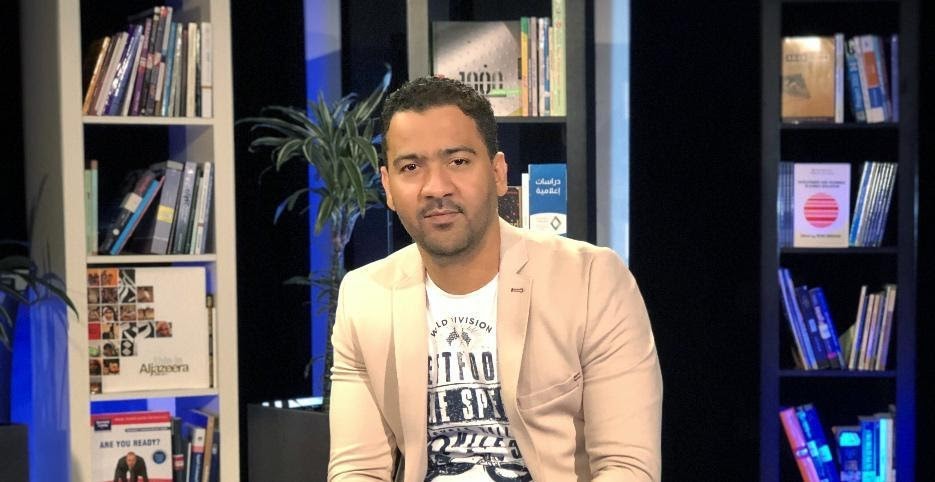في أواسط القرن العشرين، تنبأ المنظّر الإعلامي الكندي مارشال ماكلوهان بأن العالم سيتحول بفعل التطور التكنولوجي المتسارع إلى قرية صغيرة. وقد أثبت الواقع الذي نعيشه اليوم صحة نبوءة ماكلوهان، حيث وصل عدد مستخدمي الهاتف المحمول بحسب التقرير (1) الذي اُعد بالشراكة بين هوتسويت (hoot suite) و وي آر سوشل (we are social) إلى 5.20 مليار مستخدم، ووصل عدد مستخدمي الإنترنت إلى 4.66 مليار، أما مستخدمو شبكات التواصل الاجتماعي فقد بلغ عددهم 4.14 مليار مستخدم.
هذا العدد الهائل من المستخدمين، تحوّل إلى جمهور تتنافس وسائل الإعلام على استقطابه، وألقى بظلاله على الممارسات الصّحفية، فظهر ما بات يعرف بالإعلام الرقمي، وصحافة المواطن، وصحافة اللحظة.
في هذا المقال نسلط الضوء على الصحافة الموريتانية في زمن الثورة الرقمية، محاولين الإجابة على الأسئلة التالية:
كيف تأثرت الصحافة الموريتانية سلبا وإيجابيا بالثورة الرقمية؟
وما تطلعات الصحفيين لمستقبل الصحافة في العصر الرقمي؟
ظهرت الصّحافة الرقمية في تسعينيات القرن الماضي بالتزامن مع انتشار المواقع الإلكترونية الإخبارية، وبداية موسم الهجرة من المطبوع إلى الرقمي، ما يمكن اعتباره بدايةً لانحسار الصحافة المطبوعة تحت تأثير ثورة تكنولوجيا الاتصال. لقد اختفى نحو 200 صحيفة بريطانية منذ عام 2005، وتراجع تداول الصحف في اليابان بمقدار 10 ملايين منذ عام 2000، وفي المغرب الكبير توقفت نحو 60 صحيفة عن الصدور في الجزائر منذ عام 2014، واختفى ما يصل إلى 58 بالمئة من الصحف الورقية في أقل من 7 سنوات في المغرب (2).
ومع مطلع الألفية الجديدة كان العالم على موعد مع ثورة اتصال ثانية، تمثلت في ظهور ما بات يعرف الآن بشبكات التواصل الاجتماعي، ليبدأ موسم هجرة جديد. فعدد المستخدمين الذي يحسب بالمليارات على منصات التواصل الاجتماعي، أرغم مؤسسات الإعلام التقليدية على حجز مكان لها بين هذا الجمهور الكبير، الذي أصبح يتفاعل بشكل مباشر مع الرسائل الإعلامية، ويشارك في مواكبة الأحداث، ونشر الأخبار والتعليق عليها.
ولم تكن موريتانيا بمعزل عن هذا الواقع، حيث يرى الأستاذ الهيبة الشيخ سيداتي، المدير التنفيذي لوكالة أنباء الأخبار المستقلة، أن العديد من المؤسسات الصحفية الموريتانية أدركت أهمية الانتقال إلى مجال الصحافة الرقمية. فعملت على مواكبة التطور الذي أحدثته شبكات التواصل الاجتماعي في المشهد الإعلامي، فأفادت واستفادت من هذا الواقع، وباتت تبث رسائلها في قوالب تناسب طبيعةَ وجمهورَ المنصات الرقمية، مع المحافظة على مبادئ المهنة، وركائز العمل الصحفي. أما المؤسسات التي رأت في الإعلام الرقمي عدوا لها، واعتبرته مصدرا لنشر الشائعات والأخبار الزائفة، فقد باتت خارج من المنافسة.
السرعة في نقل المعلومة والتفاعل معها من أهم ما أضافه الإعلام الرقمي لمهنة الصحافة بحسب الهيبة، فقد كانت الأخبار تُنقل في مواعيدَ محددة عبر الصّحف، والمحطات الإذاعية، والقنوات الفضائية، وتحتاج وقتا طويلا لتُحدِث التأثير المنتظر، أما في العصر الرقمي فإن الرسائل الإعلامية تنشر فور حدوثها، وتحدث تأثيرا آنيا، وعند أي خطأ -حتى ولو كان مطبعيا- تتلقى المؤسسة الإعلامية عشرات الردود الغاضبة، ما يعبر عن حضور الجمهور ويقظته، ويؤكد أن وسائل استقبال الأخبار أصبحت في كل يد، بعد أن كانت في كل بيت في أحسن الأحوال خاصة مع إتاحة خاصية التفاعلية.
وبموازاة الفوائد الكثيرة التي أتاحتها شبكات التواصل الاجتماعي لمهنة الصحافة، يرى الهيبة أنها مثّلت متنفساً للصحفيين يعبّرون من خلاله عن آرائهم الشخصية، متجردين من ضوابط العمل الصحفي التي تفرض عليهم نقل الأخبار دون إبداء رأي، أو انحياز لطرف دون آخر، كما استفادوا من تنوع المصادر وتعدّدها وسرعة الوصول إليها.
يقول الهيبة دخلنا في "الأخبـار" ميدان الإعلام الجديد متأخرين نسبيا مقارنة ببعض المؤسسات الأخرى، واستفدنا كثيرا من تجربة بعض القنوات الإعلامية العربية والدولية التي سبقتنا إلى هذا المجال، خاصة شبكة الجزيرة الإعلامية، حيث بتنا نعدّ محتوى لصفحتنا على فيسبوك يختلف عن المحتوى التقليدي الذي كنا ننتجه في صحيفتنا الأسبوعية وفي موقعنا الإخباري. وهو محتوى يحافظ على ضوابط المهنة، ويراعي خصوصية شبكات التواصل الاجتماعي. ومكنّنا فيسبوك من الحصول على معطيات دقيقة حول جمهورنا المستهدف، وصارت لدينا معرفة باهتماماته وفئاته العمرية وتوزيعه الجغرافي، وأصبحت سياساتنا وخططنا المستقبلية واضحة المعالم، محددة الأهداف، ومستندة إلى إحصائيات وأرقام ومعطيات دقيقة.
ويرى الأستاذ أبو بكر ولد المامي وهو أحد الفاعلين في ميدان الإعلام الرقمي في موريتانيا أن الصحافة الرقمية أضافت انسيابية في نقل الأخبار وانتشارها والتفاعل معها، خصوصا في بدايات ظهور منصات مختصة في الصحافة الرقمية كمنصة تواتر التي تعد من أوائل الشبكات الرقمية في موريتانيا، وكان أبوبكر مسؤول النشر والتحرير فيها خلال الفترة الممتدة بين 2015 و2018 قبل أن ينتقل إلى العمل بمنصة الرؤية التي تعد أكبر منصة رقمية في موريتانيا من حيث عدد المتابعين.
إلا أن ساحة الإعلام الرقمي في موريتانيا تشهد مؤخرا ما يشبه الفوضى بتعبير أبو بكر، ذلك أن شبكات التواصل الاجتماعي تتيح لأي مستخدم إمكانية إنشاء منصة رقمية، دون أن تكون لديه خبرة بمبادئ وأخلاقيات العمل الصحفي، وأغلب هذه المنصات تفتقر إلى المهنية، ولا تمتلك أطقماً فنية وتحريرية تمكّنها من نقل المعلومات والأخبار وفق معايير الجودة والصدقية، وفي بعض الأحيان تقوم هذه المنصات على شخص واحد بلا خلفية إعلامية، يوجّه عدسة هاتفه إلى أي شيء يجد فيه غرابة، أو يرى أنه قد يجلب التفاعل، دون مراعاة لأي شيء آخر.
ومن المشاكل التي تواجه العاملين في ميدان الصحافة الرقمية في موريتانيا، غياب قوانين تحكم الممارسة المهنية، فهوم مجال مفتوح أمام الجميع، وقد نتج عن ذلك ظهور ما يمكن وصفه بـ "المتسولين باسم الصحافة" حيث يمارس هؤلاء أنماطا من الابتزاز، فهم على استعداد لتشويه صورة أي مسؤول أو موظف أو رجل أعمال لا يدفع لهم.. أما من يقدم المال فهو "الرجل المناسب في المكان المناسب".
غياب الدعم وضَعف الأجور والعمل دون عقودٍ تحمي حقوق الصحفيين، مما ساهم في ترسيخ هذه العادة السيئة، ودفع العديد من أصحاب الخبرة والأسماء الوازنة إلى البحث عن مصادر دخل خارج مهنة الصحافة، وأتاح غيابهم الفرصة لظهور ثلة من الأدعياء والمتطفلين.
ولئن كانت المنصات الرقمية تحظى بأهمية كبيرة في موريتانيا، فإن تصدّر أصحاب الخبرة للمشهد يعد أولوية الأولويات، تحديدا في ظلّ حاجة المواطن إلى وجود مؤسسات صحفية قادرة على مراقبة أداء الحكومة، وكشف أي شبهة فساد، ومواجهة المتطفلين على المهنة، خصوصا مع انتشار شبكات رقمية تعتمد في تمويلها على رجال أعمال وجهات خارجية. ويمكن اعتبارها أذرعاً إعلامية لمصادر تمويلها.
مصادر:
1- DIGITAL 2020: OCTOBER GLOBAL STATSHOT
2- ما هو مصير الصحافة الورقية؟
هوامش:
الهيبة الشيخ سيداتي المدير التنفيذي لوكالة أنباء الأخبار المستقلة/ مقابلة
أبوبكر ولد المامي صحفي موريتاني/ مقابلة








































